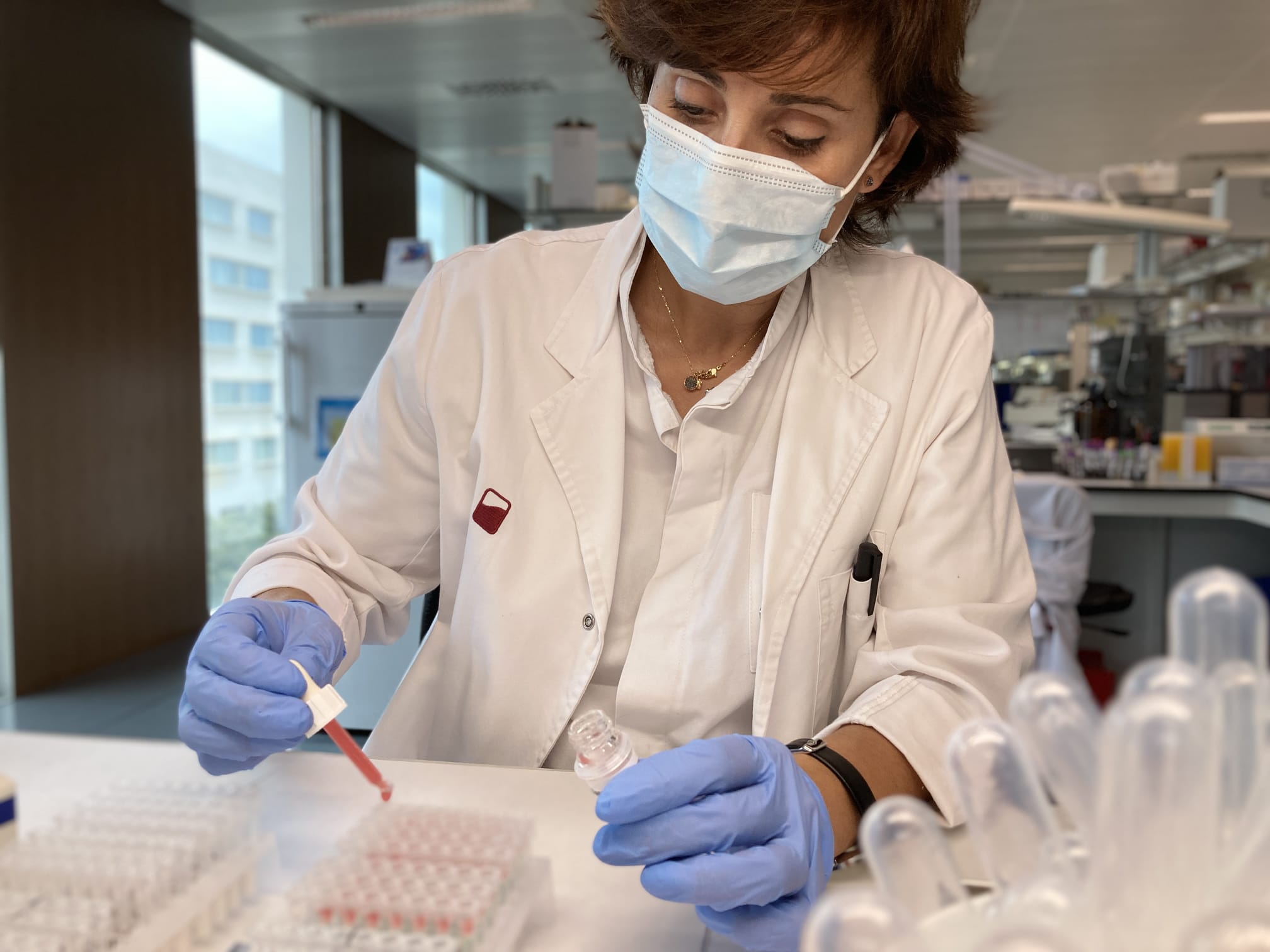Immunohaematology laboratory

The Immunohematology Laboratory is a leader and reference centre in immunopharmacological diagnosis and the study of blood groups.
The laboratory carries out care, teaching and research tasks.
At a healthcare level
- The immunohematology laboratory provides support to all the transfusion services in Catalonia, identifying the causes and providing solutions to the problems of transfusion incompatibility presented by some patients.
- It is responsible for the analytical control of pregnant women and the monitoring of those who develop antibodies during pregnancy.
- Immunopharmacological diagnosis of autoimmune haemolytic anaemia and immune mechanism thrombocytopenia and neutropenia is carried out.
- All blood groups of red blood cells, platelets and granulocytes are phenotyped or genotyped, depending on the context
- Graft follow-up is performed in allogeneic transplants from haematopoietic parents
- Immunological complications of transfusion are investigated: haemolytic reactions, transfusion-related acute lung injury or TRALI, for short, allergic reactions, transfusion-associated graft-versus-host disease and post-transfusion purpura
- Foetus-maternal incompatibilities for blood group antigens are investigated using non-invasive prenatal diagnostic techniques
- Phenotyped red blood cell panels are developed for screening and identification of irregular anti-erythrocyte antibodies
At a teaching level
- The Immunohematology Laboratory is involved in the teaching of resident intern doctors (RIM) in the speciality of haematology and haemotherapy, nursing students, laboratory technicians and clinical analysis specialists
- Every year it welcomes professionals linked to transfusion medicine from different countries, especially from Latin American countries
- It carries out undergraduate and postgraduate teaching activities in collaboration with the public universities of Catalonia
At the research level
The Immunohematology Laboratory coordinates different research projects linked to the study of allelic variants of blood groups and the development of new technologies applied to immunohaematological diagnosis.